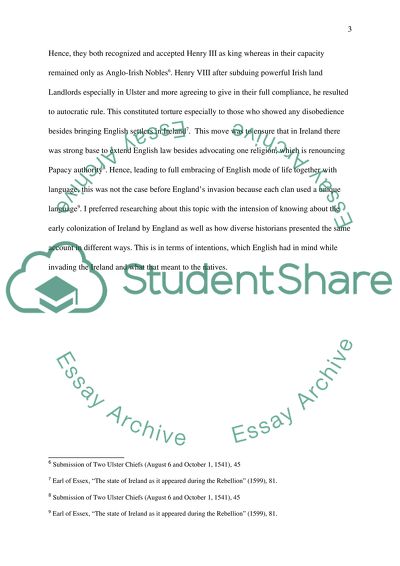Cite this document
(“The implications of Tudor-Stuart polices on Ireland Research Proposal”, n.d.)
The implications of Tudor-Stuart polices on Ireland Research Proposal. Retrieved from https://studentshare.org/history/1647550-what-are-the-implications-of-tudor-stuart-polices-on-ireland
The implications of Tudor-Stuart polices on Ireland Research Proposal. Retrieved from https://studentshare.org/history/1647550-what-are-the-implications-of-tudor-stuart-polices-on-ireland
(The Implications of Tudor-Stuart Polices on Ireland Research Proposal)
The Implications of Tudor-Stuart Polices on Ireland Research Proposal. https://studentshare.org/history/1647550-what-are-the-implications-of-tudor-stuart-polices-on-ireland.
The Implications of Tudor-Stuart Polices on Ireland Research Proposal. https://studentshare.org/history/1647550-what-are-the-implications-of-tudor-stuart-polices-on-ireland.
“The Implications of Tudor-Stuart Polices on Ireland Research Proposal”, n.d. https://studentshare.org/history/1647550-what-are-the-implications-of-tudor-stuart-polices-on-ireland.


